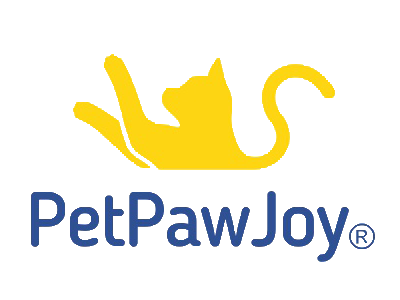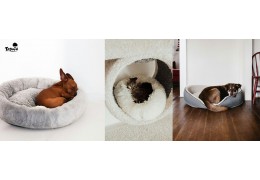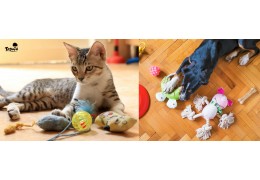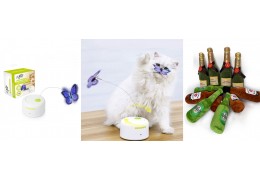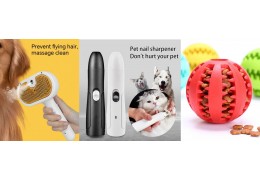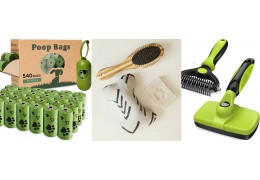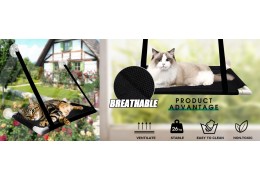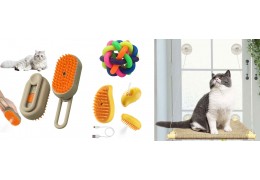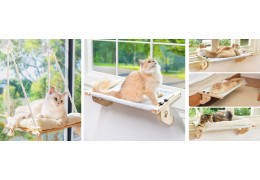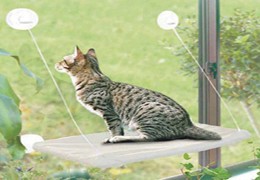This in-depth guide explains how the wholesale pet bed market is evolving in 2026. It covers the surge in demand for...
How to Choose the Right Custom Pet Toys for Your Retail Chain
When sourcing top-tier custom dog toys for your store, partnering with a reliable pet toy factory is essential—especially if you want access to a wide selection of wholesale pet toys that strike the perfect balance between quality, price, and trendiness. In this guide, we walk retail chains through the critical steps to select the right custom dog toys, leverage wholesale pet toys, and build a winning collaboration with a pet toy factory.
1. Understand Your Market & Customer Needs
Successful retail chains begin by pinpointing what kind of toys customers actually want:
Breed and size segmentation: Big dogs need durable chew toys, while small breeds prefer softer, plush custom dog toys.
Buyer preferences & trends: Eco-friendly materials, treat dispensers, interactive smart toys—spot what’s rising in demand.
Price tiers: Some stores cater to budget-conscious buyers; others target premium segments looking for designer wholesale pet toys.
Asking retail managers for sales data, reading online reviews, and monitoring pet-owner communities will give clarity on which custom dog toys will sell fast.
2. Know What The Right Pet Toy Factory Offers
Choosing the best pet toy factory impacts consistency, margins, and brand image:
Production capability: Can they deliver your projected volume for your chain using scale economies when you buy wholesale pet toys?
Material expertise: Do they offer FDA safe rubber, organic fabric, or eco TPE? This is critical if you're positioning your custom dog toys as premium or eco friendly.
Customization options: Colors, logos, packaging, shapes, and branding—ensure the factory collaborates on bespoke design for your chain’s identity.
Quality control system: ISO or other industry certifications, batch testing, and rejection policies protect your reputation.
Lead times and responsiveness: For wholesale pet toys, timely restocking and agility can be a competitive advantage.
3. Balancing Trendy and Evergreen Toy Lines
A smart retail chain blends trending gadgets with forever favorite basics:
Interactive tech toys like treat dispensing balls or motion activated fetchers are hot trends—great if the pet toy factory can prototype fast.
Classic chew toys, plushies, and squeakers never go out of style and deliver reliable wholesale pet toys SKUs with steady turnover.
Seasonal tie ins and limited editions—design holiday-themed custom dog toys, tie in with pet wellness campaigns, or collaborate with influencers to generate buzz.
This ensures both impulse sales and base level stability across your stores.
4. Keyword-Rich SEO-Friendly Product Descriptions
Boost your online visibility in search engines by optimizing your product pages:
Use phrases like “Durable custom dog toys for aggressive chewers” or “Eco rubber wholesale pet toys bulk deals.”
Include benefits and specs in plain terms: “Non toxic TPR,” “Floatable,” “Replacement part available.”
Add user-generated content: ratings, photos, testimonials—search favors real usage signals.
Maintain density: Given a 1,400 word count, each keyword should appear ~70 times—or ~5% occurrence—for bolded SEO strength. That means integrate custom dog toys, wholesale pet toys, pet toy factory frequently—but naturally—not forced.
5. Sample Selection & Testing Before Full Production
Don’t commit large orders of wholesale pet toys blindly:
Request prototypes (samples) from your pet toy factory based on your custom dog toys design.
Perform field tests: durability wear tests, pet owner focus groups, and in store trial sales.
Collect feedback: Are dogs engaging? Do buyers like the packaging and price point?
Grade performance: Sales, returns, reviews. Drop low performers and iterate on winners.
This trial-and-refine stage minimizes risk and ensures gross margin on eventual volume sales.
6. Pricing Strategy for Retail Chains
Your margins hinge on pricing your custom dog toys right:
Calculate cost per unit (including overhead, shipping, tariffs).
Compare wholesale pet toys pricing tiers—bulk discounts, volume breaks.
Consider MSRP guidelines and mark up percentages (typically 2 × cost or keystone).
Factor in promotions: buy two get one deals, seasonal bundles, and loyalty discounts.
Transparent cost structure from your pet toy factory enables smarter pricing with room for in store promotion flexibility.
7. Packaging & Branding That Makes a Statement
For retail success, packaging matters almost as much as the toy:
Display-ready blister packs, hang tags, or shelf ready boxes help in store merchandising of custom dog toys.
Design alignment: Use your chain’s logo, brand colors, and consistent style across all wholesale pet toys.
Take advantage of eco messaging: Recyclable packaging and bio inks resonate strongly with pet owners.
Certifications and safety seals prominently shown—this builds trust, especially for higher price custom dog toys.
Work with the pet toy factory to co-design packaging that sells itself on shelves.
8. Supply Chain & Logistics: Scaling Smartly
Efficiency in logistics is key when stocking large volumes of wholesale pet toys:
Negotiate lead times and reorder thresholds with your pet toy factory.
Arrange for FOB or EX works delivery terms that match your warehouse logistics.
Use staggered shipments to avoid overstocking or stockouts across multiple retail locations.
Ensure transparent inventory forecasting: Your pet toy factory should support EDI order systems or shared forecasts.
Well managed supply logistics keep your retail chain agile and lean.
9. Marketing & Retail Execution
Drive demand in store and online for your custom dog toys:
In store demos: Let dogs test toys; use videos, signage, and samples to show engagement.
Web content and blogs: Write articles on toy safety, playtime best practices, and highlight your signature custom dog toys offerings.
Social media & influencer campaigns: Showcase pets using the toys; partner with micro influencers to spread awareness of your chain’s signature wholesale pet toys.
Loyalty program rewards: Encourage repeat purchases—e.g. “Buy 5 plush toys, get one free”—revolving around your custom lines.
Cross-display strategies: Place chew toys near food or collar sections to increase impulse buys.
10. Tracking Success & Iterating
Once products hit shelves, track performance and improve:
Sales analytics: Which custom dog toys types sell fastest? Which wholesale pet toys have high returns?
Customer feedback: Encourage reviews and satisfaction surveys—retail chains can benefit from sheep and goose tales.
Inventory turn rate: Aim for healthy turnover; stale slow sellers tie up capital.
Design tweaks & seasonal refreshes: Work with the pet toy factory to refine product features or colorways based on data.
This data driven iterative process helps scale your best lines and ditch underperformers.
Final Thoughts
Choosing the right custom dog toys through a dependable pet toy factory, leveraging scalable wholesale pet toys, and aligning around market trends, retail data, packaging, logistics, and marketing—all define a successful retail chain strategy. By embedding keyword rich, user focused content (as outlined above) and a rigorous sampling and testing pipeline, your stores can offer standout products that drive sales, loyalty, and brand strength.
Remember: consistency in branding, flexible order volumes, material transparency, and iterative improvement with feedback loops are your keys to winning the retail pet toy space. When your retail chain trusts your pet toy factory and relies on well designed custom dog toys and curated wholesale pet toys, that’s when you build long term customer trust, margin stability, and growth potential.
